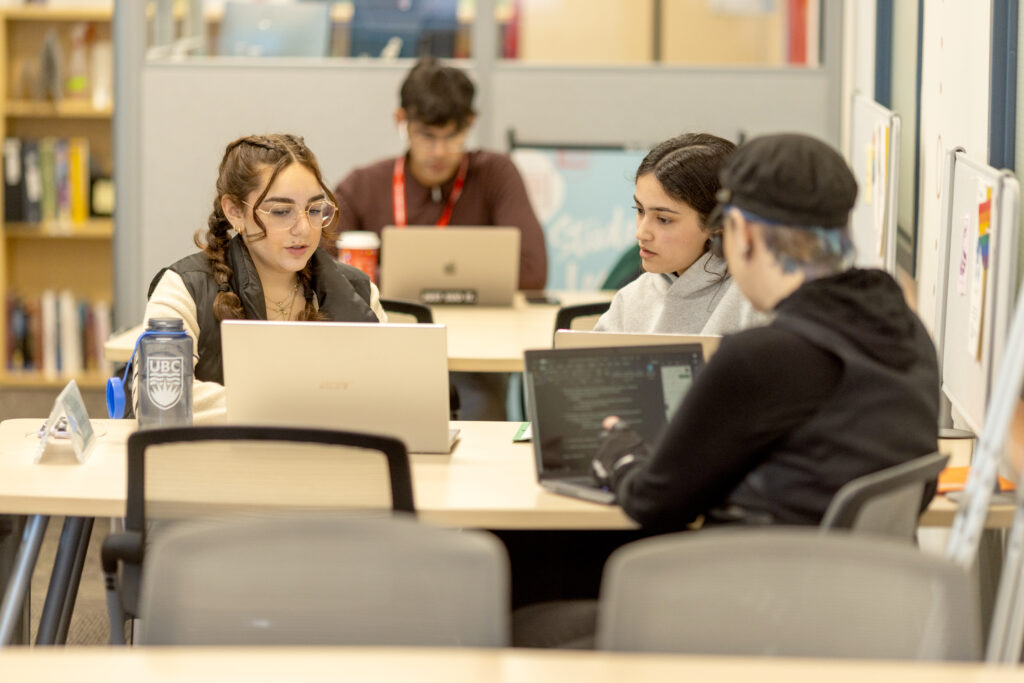
UBC Okanagan’s Centre for Scholarly Communication aims to demystify thesis writing for undergraduate students through their new workshop and retreat series.
Writing a thesis is one of the most difficult and complex tasks many students will face in their academic career, with a well-earned reputation for challenging even the best and brightest. For hundreds of honours students nearing the end of their undergraduate academic journey, this seemingly overwhelming task stands between them and the renowned honours distinction on their degree. Seeking to support this feat, UBC Okanagan’s Centre for Scholarly Communication (CSC) has developed a new series of workshops and a writing retreat specifically targeted at supporting undergraduate thesis writers.
The project idea emerged when a group of undergraduate students expressed interest in joining writing retreats designed for graduate students and post-doctoral associates. While these retreats focused specifically on the needs of graduate students and post-doctoral associates, the CSC saw an opportunity to better support all researchers on campus by creating a dedicated workshop and retreat series for undergraduate researchers.
“While we’ve always offered one-on-one support for undergraduate researchers, we hadn’t built up thesis workshops specifically for them,” says Jessica Lowry, an Academic Communication Consultant at the CSC and part of the team that organized the series. “The students requested a retreat, but we thought we should build extra support leading up to it so that the retreat would be more digestible and give them a chance to write in community.”
From October to March 2024, the CSC hosted five workshops that focused on essential foundational skills to help undergraduate students to build a strong base to present their research. The response was enthusiastic, with nearly 100 participants attending the series.
Anastasia Bernaz, a recent Bachelor of Science with an Honours in Biochemistry & Molecular Biology graduate, participated in the new support program while she completed her undergraduate thesis. “The workshops helped me really master the skill of dividing one big task into several little manageable steps,” shares Bernaz. “It was also very helpful to see the actual examples of theses. You could see how they are different, and that you can have your own personal style.”
Beyond building skills and confidence in their writing, the workshops also created opportunities for participants to connect with other students facing similar challenges. “A lot of writing tends to be in isolation. We wanted to give students space to meet each other and interact,” explains Lowry. “The ultimate goal is to make the experience better and healthier for students and help them work together and build good habits.”
This sense of community proved invaluable, as students supported each other throughout their thesis journeys. “The workshops were a great space to connect and see that you are not the only one who struggles. Throughout this semester we were all helping and checking in on each other,” shares Bernaz. “When we were all done, it was exciting to see everyone’s completed works and posters. We all knew how much work there was behind it.”
Following the series’ initial success, Lowry looks forward to seeing how the workshops can continue to grow and support students, with plans to offer additional opportunities for reflection, interaction, and writing in community in the series. “We got really great feedback from the students. We’re excited to look back at what worked and what didn’t to make the series even better and more accessible in the future.”
To learn more about the wide range of services and support for research writing available to students, faculty and staff, visit the Centre for Scholarly Communication website. Additional writing and learning resources can also be accessed through the Student Learning Hub